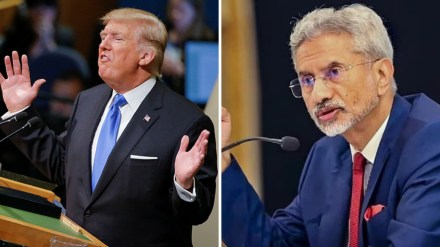World leaders have begun gathering in New York for the 80th session of the United Nations General Assembly (UNGA), with this year’s focus expected to be dominated by the conflicts in Gaza and Ukraine. The annual session officially opened on September 9, while the high-level general debate will begin on Tuesday at UN headquarters in Manhattan.
UN General Assembly Full Itinerary from Sep 23- Sep 29
Tuesday, Sept. 23
By tradition, Brazil will open the debate, followed by the United States as the host nation. Brazilian President Luiz Inácio Lula da Silva will address the Assembly before US President Donald Trump. The custom dates back to the UN’s early years, when no country wanted to take the first slot. Brazil volunteered and has held that honour since the 10th General Assembly in 1955.
Brazil’s intense political climate will likely remain in focus after former President Jair Bolsonaro was sentenced to more than 27 years in prison for plotting a failed coup after losing the 2022 election. Trump had urged Brazil to drop the charges, but Lula has vowed not to bow to US pressure and even claimed he has “no relationship” with Trump in a recent interview with the BBC.
The US, as host, speaks second. The remaining order is determined through a UN-designed sequence based on various factors.
Trump is likely to address the situation and the US stance in Gaza, Ukraine, immigration, and his sweeping tariff measures, which have unsettled global trade partners.
Turkey’s President Recep Tayyip Erdogan, leaders of Jordan, Qatar, and Egypt, as well as French President Emmanuel Macron, will also deliver speeches on the same day. Poland’s President Karol Nawrocki is on the afternoon roster, alongside Mexico’s first female president, Claudia Sheinbaum, who is currently at odds with Washington over trade and drug cartel crackdowns.
Wednesday, Sept. 24
Ukrainian President Volodymyr Zelensky will speak, almost certainly focusing on Russia’s invasion. His last meeting with Trump in August was positive, but chances for direct dialogue with Russian President Vladimir Putin remain uncertain as Moscow intensifies drone strikes.
Iran’s President Masoud Pezeshkian will attend the assembly amid conflict with Israel, according to his social media post update. Also on the roster is Syria’s new president, Ahmed al-Sharaa, making his UN debut after ousting Bashar al-Assad in December.
Thursday, Sept. 25
This year’s session comes amid heightened global tensions. Israel’s ground offensive in Gaza and Russia’s war in Ukraine are expected to dominate discussions and diplomatic meetings.
The Trump administration denied visas to Palestinian Authority President Mahmoud Abbas and his team, but the General Assembly voted to let him participate virtually. Sudan’s Prime Minister Kamil Idris is also expected to speak as his country remains engulfed in civil war.
Friday, Sept. 26
Israeli Prime Minister Benjamin Netanyahu will open the day’s speeches, even as he faces side-eyes for his military leadership over war strategy and increasing international isolation.
He will be followed by Chinese Premier Li Qiang, British Prime Minister Keir Starmer, and India’s External Affairs Minister S. Jaishankar. The Relationship between India and the US, once close under Narendra Modi and Trump, has shown strain in recent months amid issues revolving around Russian oil purchases and hefty tariffs. The speaker list may also include Nepal’s interim leader, Sushila Karki, the country’s first female chief justice, who assumed charge after violent protests.
Saturday, Sept. 27
Canadian Prime Minister Mark Carney will speak on September 27 and is expected to focus on a joint “action plan” with Mexico’s Sheinbaum to deal with Trump’s tariffs. Russia’s Foreign Minister Sergey Lavrov is also expected to address the assembly the same day, demanding “security guarantees” before Moscow makes concessions on Ukraine.
Venezuelan Foreign Minister Yvan Gil will speak as US naval forces build up off Venezuela’s coast. Washington has intensified its campaign against drug cartels, striking boats and branding President Nicolás Maduro a terrorist-cartel leader. Maduro, in turn, accuses the US of plotting his ruin.
Monday, Sept. 29
The week will end with remarks from Afghanistan and South Sudan. It is not yet clear who will represent the two conflict-hit nations.
UN General Assembly: Who is attending and who will be absent?
– Apart from US President Donald Trump, whose keynote address is highly anticipated, will also be accompanied by First Lady Melania Trump, as per NYT. His schedule includes bilateral meetings with world leaders, multilateral sessions, and remarks at the UN Leaders’ Reception.
– China will be represented by Premier Li Qiang instead of President Xi Jinping, while Indian Prime Minister Narendra Modi has sent External Affairs Minister S. Jaishankar to represent New Delhi.
– Russian President Vladimir Putin is skipping the assembly for another year, but Foreign Minister Sergei Lavrov will be leading Moscow’s delegation at the UN.
– Syrian President Ahmed al-Sharaa is travelling to New York to address the assembly, the first Syrian head of state to do so since 1967. Qatar’s Emir Sheikh Tamim bin Hamad Al-Thani is present as well, arriving in the wake of recent Israeli strikes on his capital.
The key focus: Gaza and Ukraine
On Monday, France and Saudi Arabia co-chaired a meeting to rally support for recognising Palestinian statehood, an issue that faces strong opposition from both the US and Israel. The United States remains the only permanent Security Council member yet to recognise a Palestinian state. France is now among several other Western countries that officially recognised a Palestinian state at the United Nations on Monday.
Palestinian President Mahmoud Abbas, denied a US visa, will address the assembly via video conference. Israeli Prime Minister Benjamin Netanyahu is expected to deliver his speech on Friday. Ukrainian President Volodymyr Zelensky has already arrived in New York and will take part in the debate along with other bilateral meetings.
